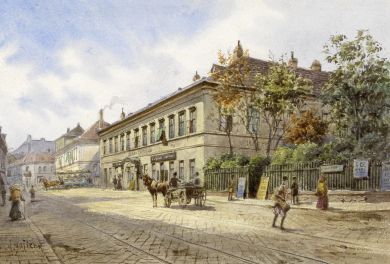What do you think?
Rate this book


127 pages, Paperback
First published January 1, 1980

But any thought not turned into written form was ultimately totally worthless, because it could have moved only its author, if anyone, and could not have made history, and he, naturally enough, had the ambition to make history, which had always been the prime prerequisite of any important, epoch-making study, as he said.
Basically, at least from that incident onward, from the dog bite, he had divided the substance needed for his life into useful and useless, into substance useful for his mind and for his thinking, and into substance useless to his mind and to his thinking, allowing the useful into his mind and into his brain, but not the useless.